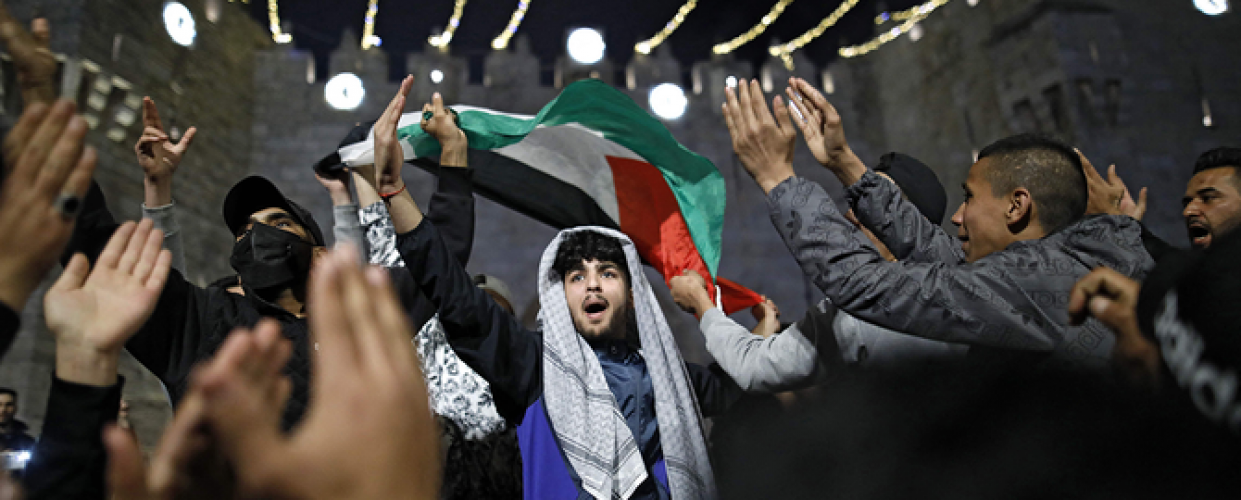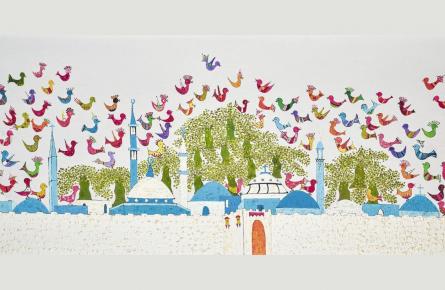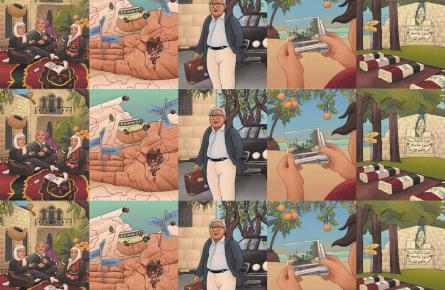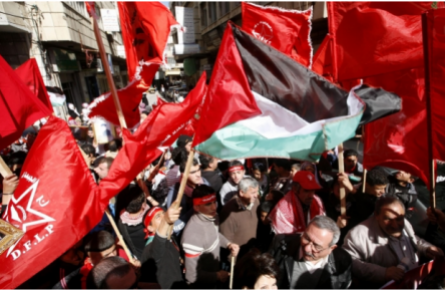Clashes between Palestinian youth and Israeli police dominated Ramadan evenings at the Damascus Gate in Jerusalem. The skirmishes escalated on April 21, when the supremacist Lehava group marched through the Old City into the Sheikh Jarrah neighborhood chanting “Death to the Arabs.”
Hundreds of Palestinians were injured or arrested by the Israeli police. A small victory was achieved on April 26, when Israeli authorities were forced to remove the metal barricades that control the movement of people entering the Old City during Ramadan.
The clashes took place as Israel continued to deny Palestinians in East Jerusalem the right to vote in upcoming Palestinian elections. In 2006, with the PA banned from setting up polling stations, voting was conducted in a number of post offices. This measure will not be allowed in 2021.The Israeli government has also consistently denied the PA the opportunity to hold any political events in the city.
These aforementioned constraints resulted in disagreements between Fatah, the Palestinian National Authority and other opposition parties, with attempts by major political parties to cancel or postpone the elections under the pretext of ‘no elections without Jerusalem’ and ‘Jerusalem is a red line for the elections.’ Many observers viewed these attempts at postponement as reflecting the ruling party’s fear of of losing control over the Palestinian Authority, especially after the fragmentation of the Fatah slate into three competing factions. Several political leaders from Hamas and the left, as well as the Nasir Qidweh/Barghouti group from Fateh, have insisted that there are logistical solutions to the Israeli bans, such as having Jerusalemites vote in areas of greater Jerusalem that are under the control of the PNA, such as Ezariyyeh and Kufr Aqab.
On April 29, President Mahmoud Abbas officially confirmed the postponement of the Legislative Elections, previously scheduled to take place on May 22. He cited Israel’s failure to confirm if it would permit voting for residents in Jerusalem. Few Palestinians found his performance convincing. While the majority of opposition factions agree that Jerusalem is a “red line” for both parliamentary and presidential elections, they believe that Abbas was excessively hasty in making his decision.
The Israeli action of violating agreed accords, while certainly unjust, is being used as a ruse by President Abbas. In past elections, Palestinians were able to vote, albeit with substantially reduced numbers under similar constraints. The postponement represents the fear felt by the aging leadership of the PLO and the PNA of losing to Hamas and the emergent opposition in Fatah. Traditional forces of the left have also concurred with Fatah’s decision to postpone, including the Communist (People’s) Party, the Democratic Union (Fida), and the Democratic Front. Several political parties in the PLO are worried about losing their budgetary allocations if they oppose the official line. The delay was vigorously protested by 22 parties and slates, including Hamas, Nasir al Qidweh/Barghouti slate, Salam Fayad, al Mubadara (led by Mustafa Barghouti), and the Dahlan list, headed by Dr. Sari Nusseibi in Jerusalem.
As the Israeli ban on voting in Jerusalem has been held up as the reason for indefinitely postponing the Palestinian legislative elections, the question now is: how will the political forces that supported this extreme measure address the exclusion of the city from the existing political framework? Sadly, it seems as if there will be no answer anytime soon. A new generation of Palestinians in the Occupied Territories (a majority of the population under the age of 21) has never had the chance to vote. Many of those young voters were hoping not only to have the chance to vote, but also to change the tired faces of the leadership in government and ‘opposition.’ It seems that the main victim of this decision is not only the Jerusalem electorate, but the entire democratic process.




